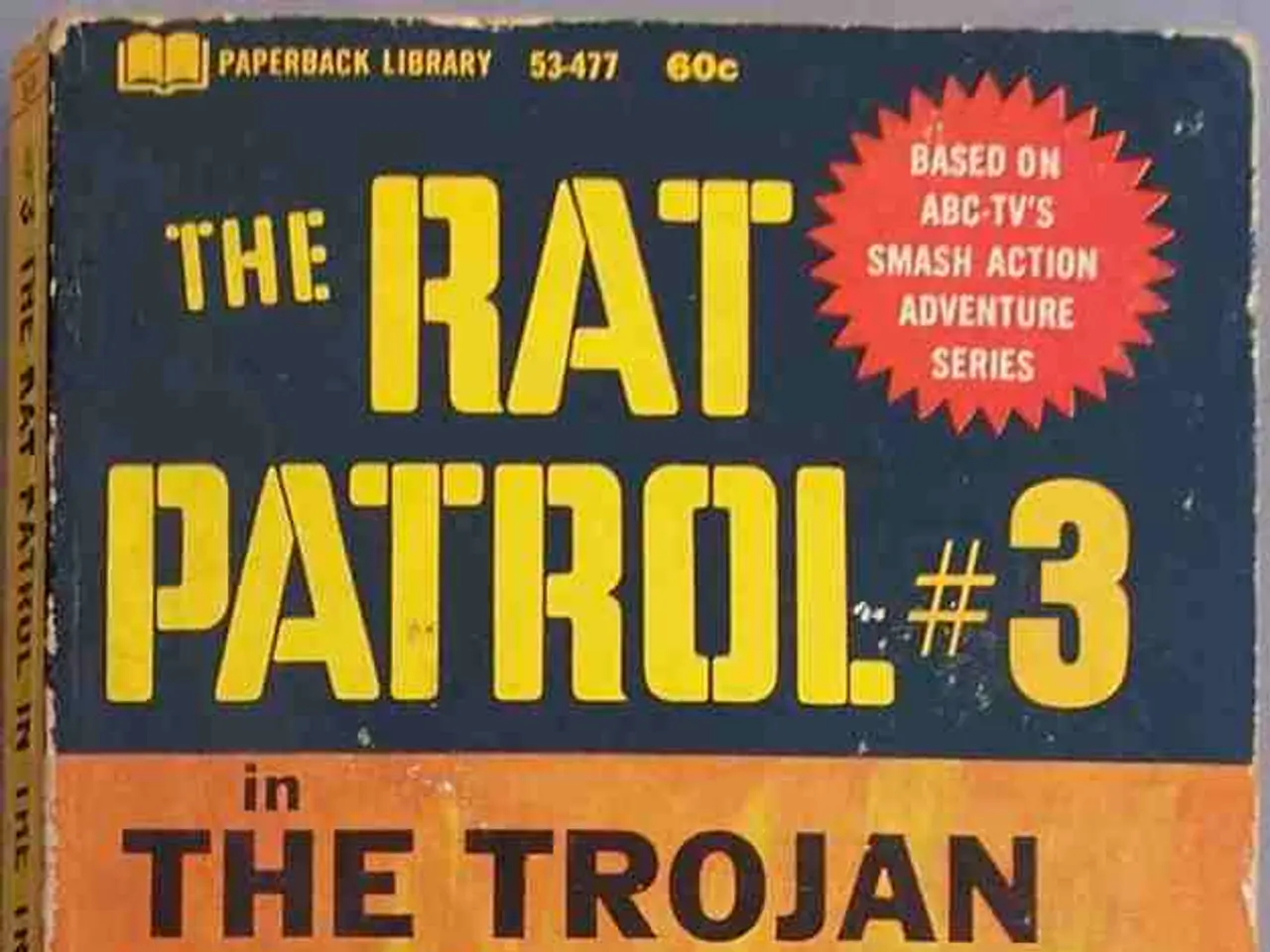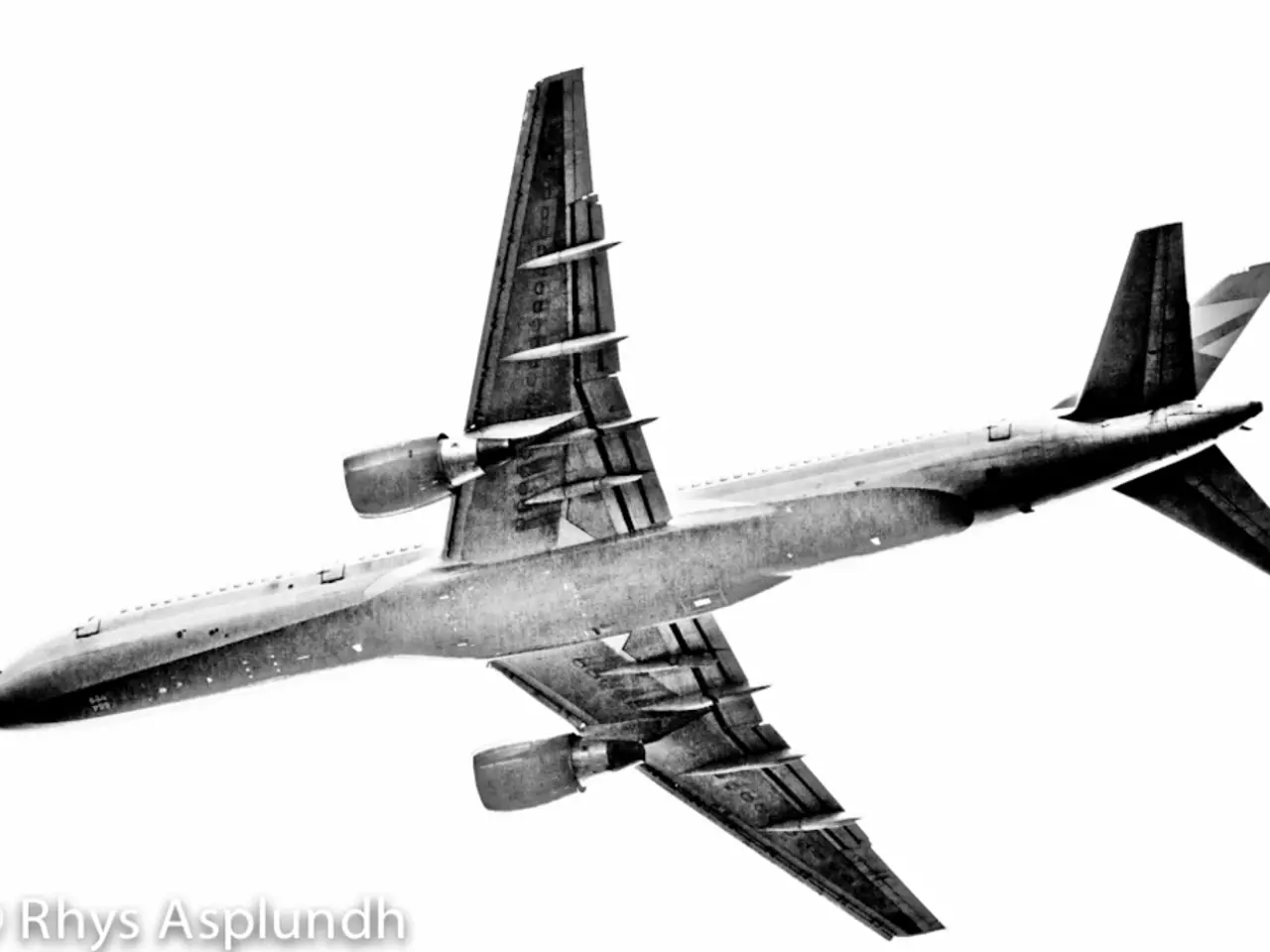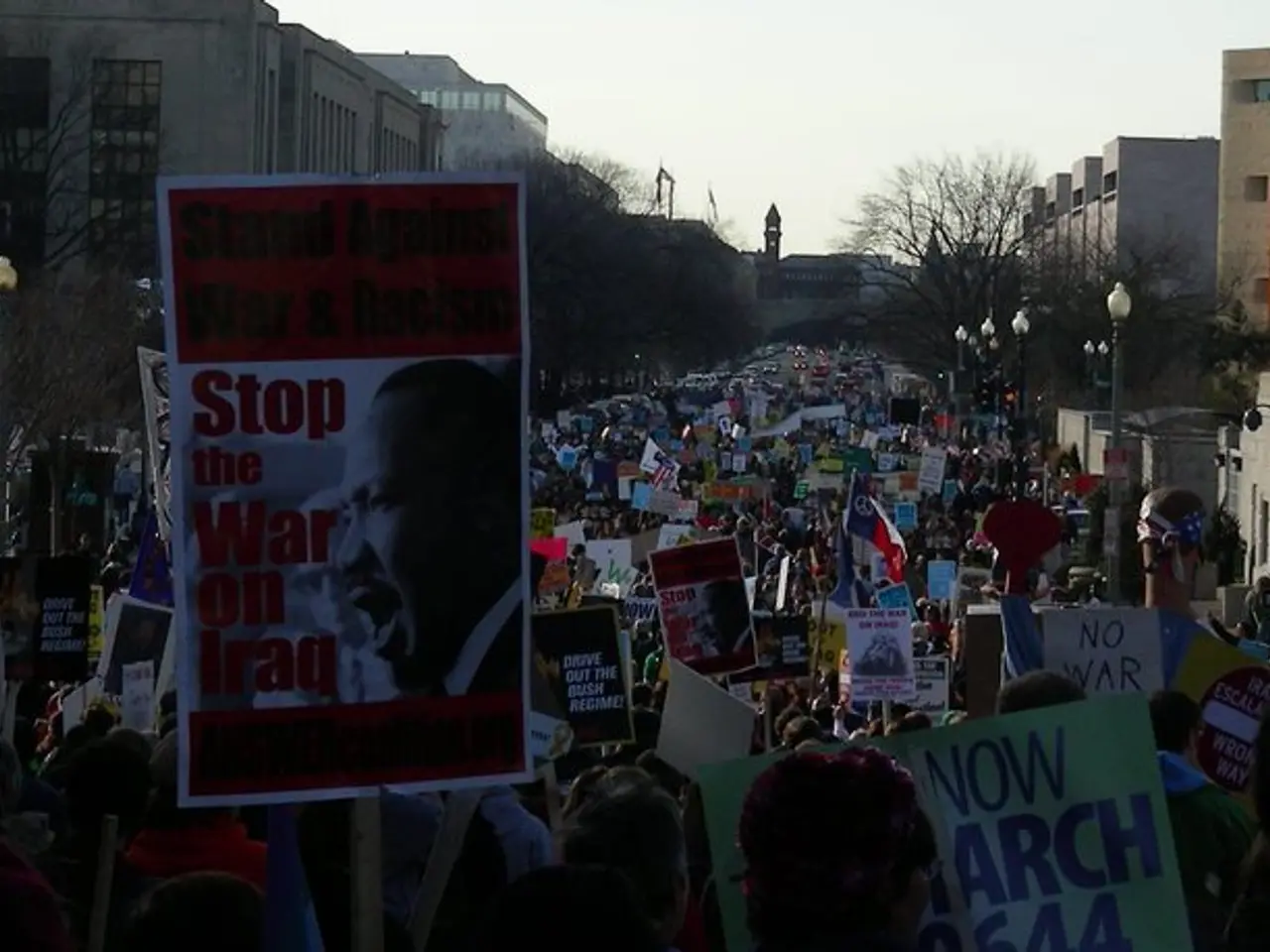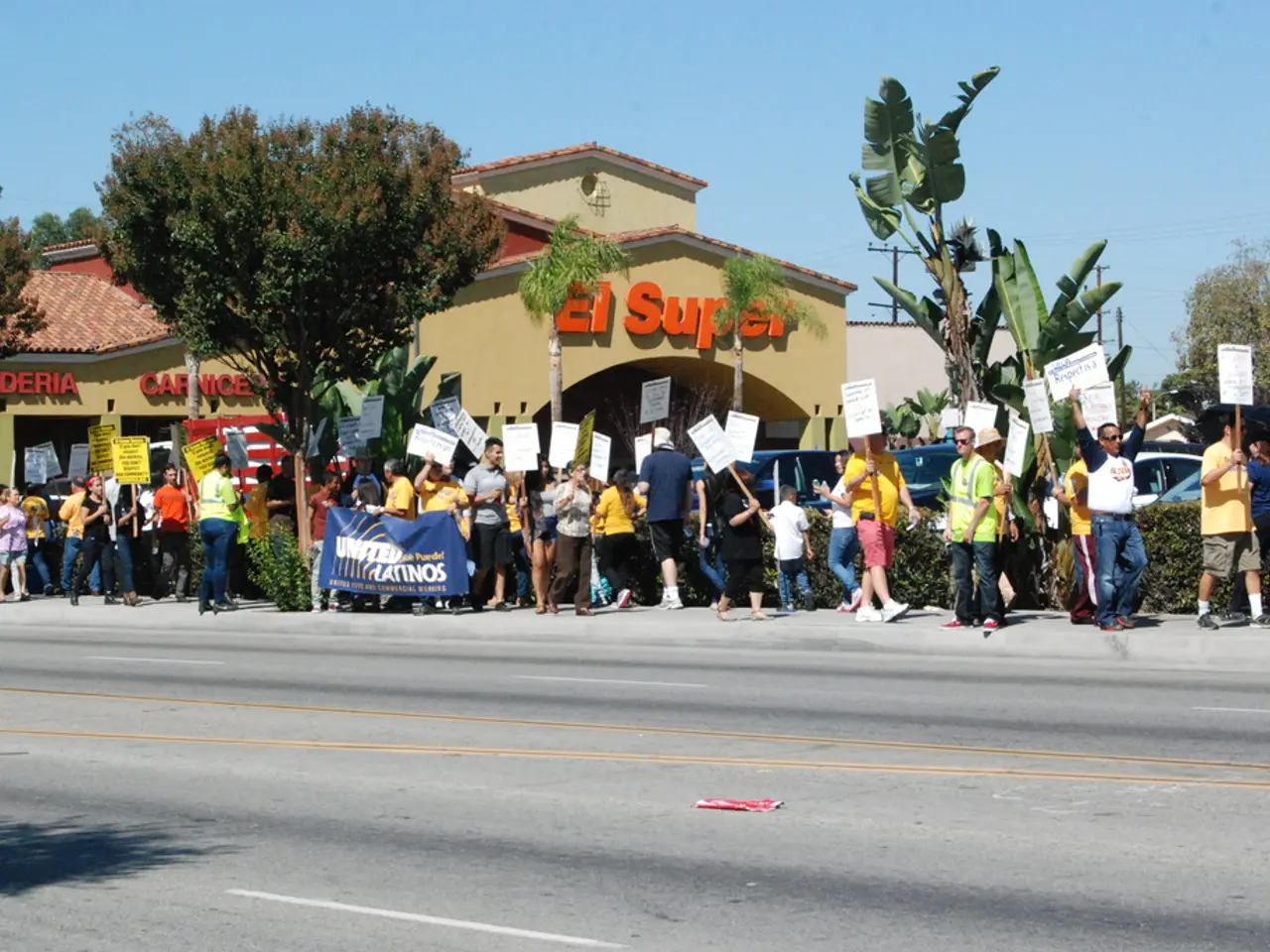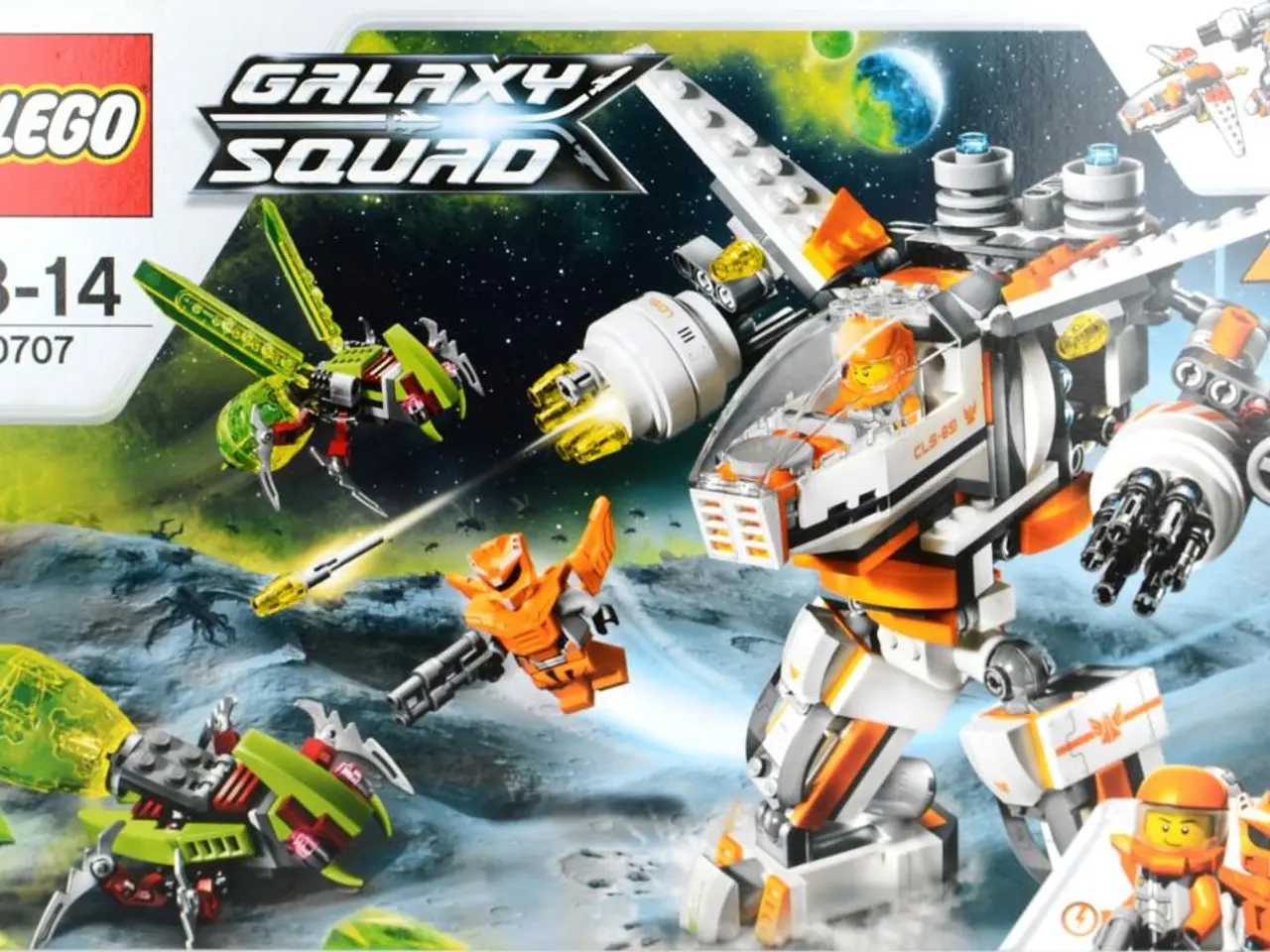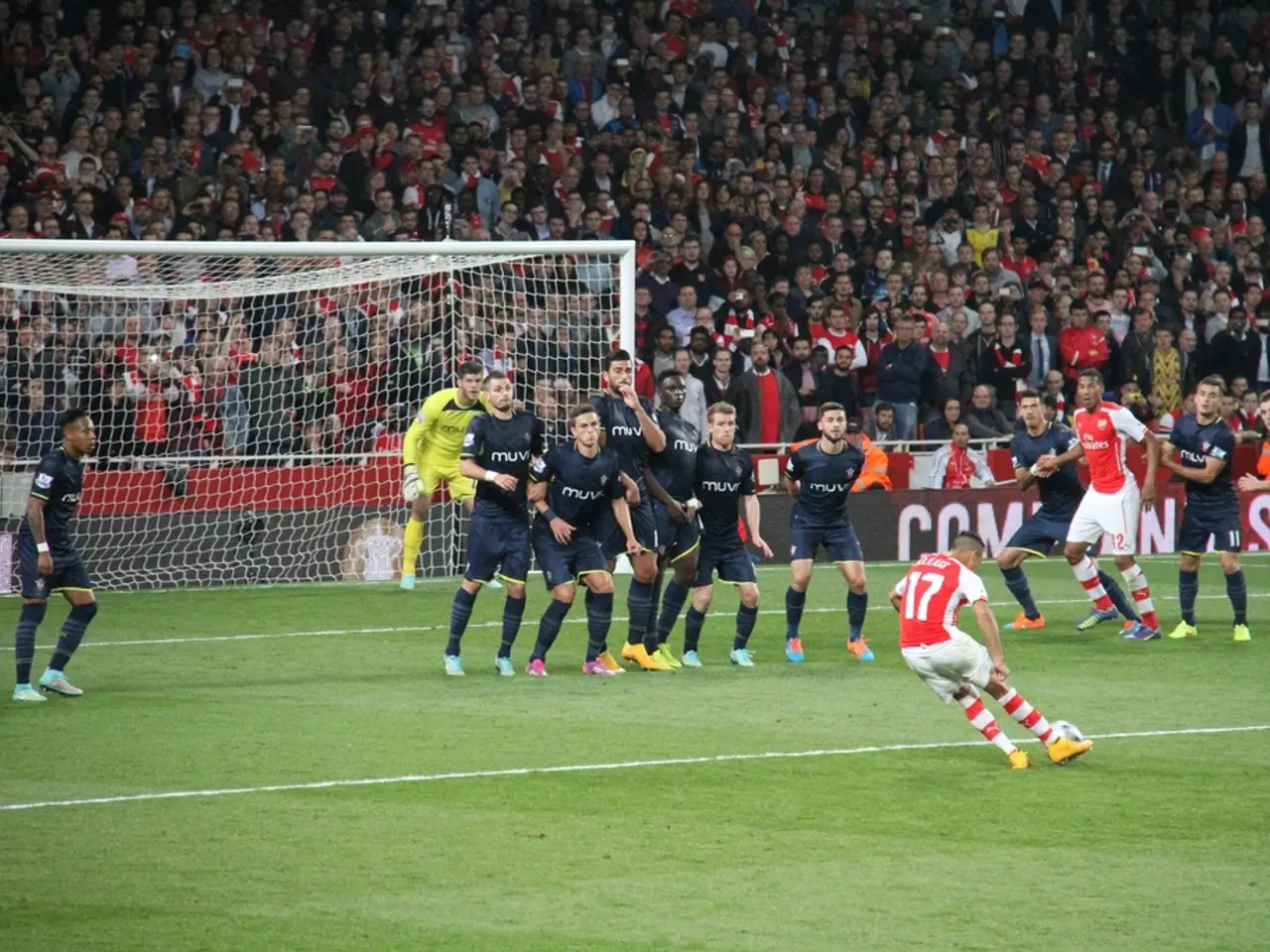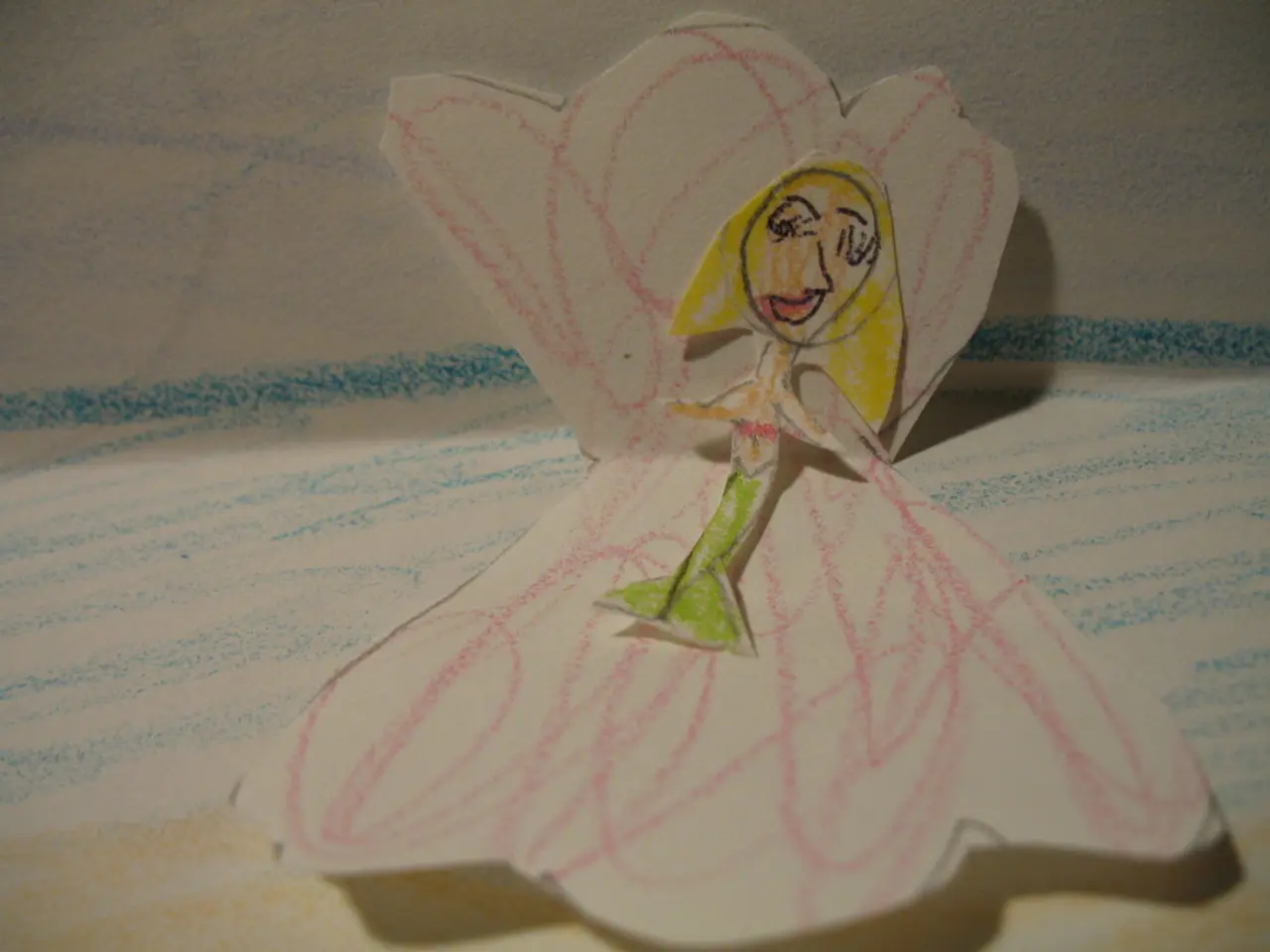Kiev is reevaluating its strategy for utilizing forthcoming EU funds
In the ongoing conflict between Ukraine and Russia, several significant events have transpired over the past few months.
Tragically, journalist Viktoria Roshchyna lost her life in Russian captivity in 2024. Her body was returned to Ukraine at the end of February and identified through a DNA test. The Ukrainian President Volodymyr Zelensky posthumously awarded her the "Order of Freedom".
The Russian aviation authority has temporarily restricted take-offs and landings at Samara airport following a section of Russia's central Asian gas pipeline being damaged by explosions. Meanwhile, military observers, including American blogger Igor Sushkin, report a large explosion at the Russian oil refinery in Novokuibyshevsk in the Samara region.
On the other hand, Russia has set a new record by launching 6129 Shahed drones against Ukraine in July, surpassing the previous record of 5337 drones in June. This aggressive action resulted in at least eleven injuries, including a five-month-old infant and two children aged nine and ten, in a heavy Russian drone attack on the eastern Ukrainian city of Kharkiv.
Ukraine's reform plan for EU funds is currently facing challenges due to unfulfilled reform commitments amid the ongoing war. As of July 2025, the European Commission has approved the disbursement of a reduced fourth tranche of €3.05 billion (out of a possible €4.5 billion) under the Ukraine Facility, citing that Ukraine has completed 13 of 16 required reforms but has yet to implement three key reforms related to territorial organisation of executive authorities (decentralisation), the reform of the Asset Recovery and Management Agency (ARMA), and the selection of judges in the High Anti-Corruption Court. Ukraine has a deadline of up to 12 months to enact all necessary legislation to secure full funding under the €50 billion Ukraine Facility program planned through 2027.
Despite these delays, Ukraine continues to receive substantial EU support. New investment agreements worth €2.3 billion in guarantees and grants were announced in July 2025 to unlock over €10 billion in public and private investments aimed at economic recovery and reconstruction, focusing on energy security, green and digital transitions, and social cohesion. Overall, Ukraine is expected to receive €12.5 billion in EU funding in 2025 despite the legislative hurdles and political debates that have slowed reform implementation.
The EU Commission may change the requirements for aid tranches due to Ukraine's failure to implement promised reforms. Brussels has warned that funds may be frozen if the Ukrainian parliament does not restore the independence of the anti-corruption bodies.
In a related development, the Ukrainian Anti-Corruption Bureau and the Special Prosecutor's Office have arrested a Ukrainian MP, several heads of local authorities, and a National Guard serviceman for embezzlement.
As the war continues, both Ukraine and Russia have been accused of various actions. The pro-Ukrainian group "Silent Crow" and the Belarusian collective "Cyber Partisans" are believed to be behind the widespread outage of the Russian airline Aeroflot. Ukraine claims to have targeted oil facilities and an electronics factory in Russia.
The US President Donald Trump has ordered the deployment of two nuclear submarines in response to remarks made by former Russian President Dmitri Medvedev. US Republican Senator Lindsey Graham warns Russia against possible escalation, responding to threats from Dmitry Medvedev, deputy chairman of the Russian Security Council.
On the diplomatic front, UK Defense Minister David Lammy expects that Russian President Vladimir Putin has no intention of leading peace negotiations. US Ambassador to NATO, Matthew Whitaker, believes that President Donald Trump still has leverage to end the war in Ukraine diplomatically.
Russian President Vladimir Putin says Moscow has started production of its latest hypersonic missile, named "Oreschnik," and confirms plans to deploy the weapon in Belarus this year. In response, US President Donald Trump has confirmed that the nuclear submarines have moved closer to Russia.
However, India is set to continue buying Russian oil despite threats of secondary sanctions from US President Donald Trump. Kremlin-linked politicians and experts in Moscow dismiss the decision by former US President Donald Trump to deploy two nuclear submarines as a threat to Russian security.
In a show of solidarity, nearly 10,000 young Poles are spending their summer holidays with the army this year, participating in one-month voluntary military basic training.
Lastly, severe sanctions will be imposed on Russia and countries doing business with Russia next week if Russian President Vladimir Putin does not agree to a ceasefire. Russian forces have advanced north-east of Pokrovsk in an attempt to encircle the city and cut off its logistics routes and ground connections.
Amidst these tense circumstances, it is crucial for both sides to prioritise diplomacy and adhere to international law to ensure a peaceful resolution to the conflict.
- The Ukrainian community and employment policy are faced with challenges as Ukraine's reform plan for EU funds is currently stalled due to unfulfilled reform commitments amid the ongoing war.
- The ongoing war-and-conflicts between Ukraine and Russia have led to escalating tensions in the political sphere, with diplomatic measures becoming increasingly important to ensure a peaceful resolution and general news coverage focusing on the escalating actions from both sides.
